By Harriet Sese
Healthcare Social Strategy: An Overview
Healthcare social strategy is essential to any successful healthcare marketing plan in today’s digital age; social media has become critical for healthcare organizations to connect with patients, promote their services, and engage with the community. A well-planned healthcare social strategy can help you reach your target audience, build trust, and establish your brand as a leader in the industry.
The first step in creating a successful healthcare social strategy is identifying your goals and objectives. Do you want to increase patient engagement, drive website traffic, or improve your online reputation? Once you clearly understand your goals, you can develop a plan that aligns with your business objectives.
Your healthcare social strategy should also focus on creating high-quality content that resonates with your audience. This can include blog posts, infographics, videos, and other types of content that educate and inform your audience. By providing valuable information, you can establish yourself as a trusted source of healthcare information, which can help you build a loyal following.
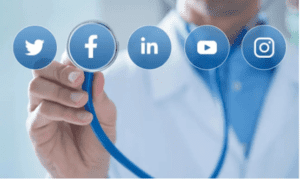
Another important aspect of healthcare social strategy is to engage with your audience. This means responding to comments, answering questions, and participating in conversations on social media. Engaging with your audience can build relationships, establish trust, and demonstrate your commitment to providing excellent patient care.
By identifying your goals, creating high-quality content, and engaging with your audience, you can establish your brand as a leader in the industry and build lasting relationships with your patients.
The Role of Social Media in Patient Engagement
Social media has become an integral part of healthcare communication and engagement. Patients increasingly turn to social media platforms to connect with their healthcare providers, share their experiences, and seek peer support. As a healthcare provider, you can leverage social media to engage with your patients and improve their health outcomes.
One of the key benefits of social media in patient engagement is the ability to connect with patients on a more personal level. Patients are likelier to engage with healthcare providers who understand their needs and concerns. Sharing patient stories and experiences on social media demonstrates your commitment to patient needs and promotes health behaviour change.
Social media also allows healthcare providers to promote health education and awareness. By sharing health promotion messages and resources, you can help patients make informed decisions about their health. You can also use social media to connect patients with community resources and support groups.
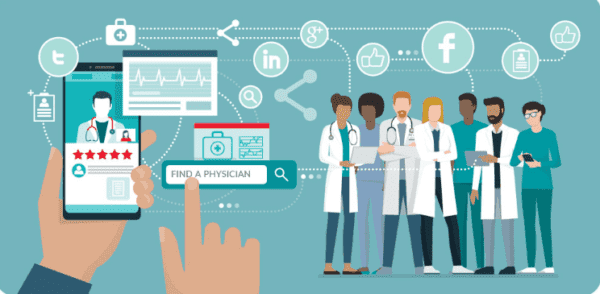
Another benefit of social media in patient engagement is the ability to provide real-time support and feedback. Patients can use social media to ask questions, share concerns, and receive guidance from healthcare providers. This can improve patient satisfaction and help patients feel more connected to their healthcare providers.
Social media has become essential for healthcare providers to engage with patients and improve health outcomes. By using social media to connect with patients personally, promote health education and awareness, and provide real-time support, healthcare providers can improve patient engagement and satisfaction.
Challenges and Opportunities in Medical Social Engagement
Medical social engagement has become increasingly important in healthcare marketing and patient engagement. It allows care providers, physicians, and hospitals to connect with patients and the broader community on social media platforms like Facebook, Twitter, and Instagram. However, there are also challenges associated with medical social engagement that need to be addressed.
Challenges
One of the main challenges in medical social engagement is privacy. Healthcare providers must comply with the Health Insurance Portability and Accountability Act (HIPAA) regulations, which require protecting patients’ personal health information. This means that care providers must be careful about what information they share on social media and who they share it with.
Another challenge is the risk of misinformation. Social media is a platform where anyone can share information, regardless of accuracy. This can lead to confusion and potentially harmful outcomes, especially during the COVID-19 pandemic. Care providers must ensure that the information they share is accurate, reliable, and up-to-date.
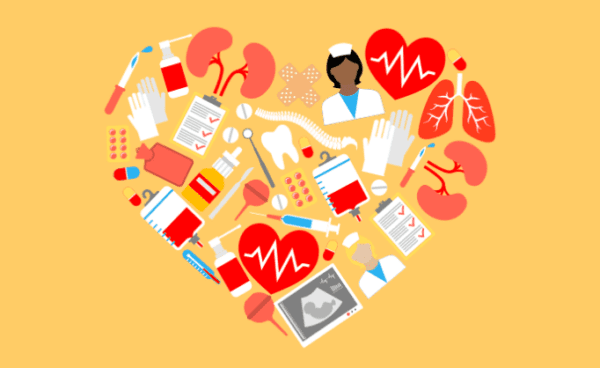
Opportunities
Despite the challenges, medical social engagement presents several opportunities for care providers, physicians, and hospitals. It provides a platform to engage with patients and the wider community, share information, and build relationships. Social media can also educate patients about their health conditions, treatments, and preventative measures.
Medical social engagement can also help care providers reach a wider audience and increase brand awareness. It can promote services, share success stories, and showcase the expertise of care providers and physicians.
Medical social engagement has both challenges and opportunities. Care providers, physicians, and hospitals must be mindful of the challenges and take steps to address them. At the same time, they should embrace the opportunities that medical social engagement presents and use them to improve patient engagement and build relationships with the broader community.
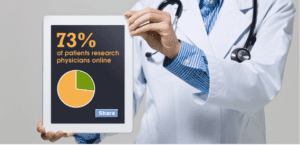
Leveraging Social Networks for Health Promotion
Social networks have become an essential tool for promoting health and wellness. With billions of users worldwide, platforms like Facebook provide a vast audience for healthcare organizations to reach out to. By leveraging social networks, you can promote healthy lifestyles and engage with your audience meaningfully.
One way that healthcare organizations can utilize social networks is by partnering with influencers. Influencers are individuals with a large following on social media platforms who can help spread the word about your health promotion campaigns. Working with influencers can increase your reach and engage with a broader audience.
Another way to promote health on social networks is by creating multimedia content such as videos and infographics. These types of content are highly shareable and can help spread your message to a broader audience. Additionally, multimedia content is more engaging than text-based content and can help you capture your audience’s attention.
When creating content for social networks, keeping your audience in mind is essential. Your content should be easy to understand and relevant to your audience’s interests. Creating content that resonates with your audience can build trust and credibility with your followers.
Leveraging social networks is an effective way to promote health and wellness. By partnering with influencers, creating multimedia content, and keeping your audience in mind, you can engage with your audience and promote healthy lifestyles. Remember to keep your content clear, concise, and relevant to your audience’s interests.
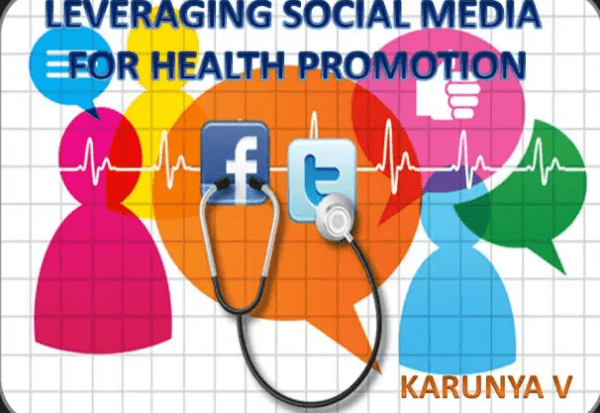
The Power of Social Listening in Healthcare
As a healthcare provider, you know how important it is to stay on top of the latest developments in medicine and public health. But with so much online information, knowing where to turn for accurate information can be difficult. That’s where social listening comes in.
Social listening involves monitoring social media platforms, forums, and other online communities for conversations related to your industry. Doing so can give you valuable insights into what people say about your brand, competitors, and industry. This information can inform your health communication strategy and improve public health outcomes.
One of the key benefits of social listening is the ability to identify emerging trends and issues in real-time. For example, if you notice a sudden increase in online conversation about a particular health issue, you can use that information to develop targeted health-related information campaigns. Providing accurate information and engaging in online communication can help dispel myths and misinformation and improve public health outcomes.
Another benefit of social listening is the ability to engage with your audience directly. By participating in online conversations, you can build relationships with your followers and establish yourself as a trusted source of health-related information. This can help to increase your reach and improve your overall brand reputation.
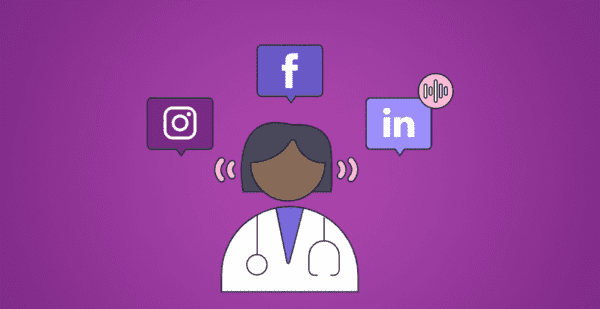
Social listening is a powerful tool for healthcare providers looking to improve their medical social engagement and stay on top of the latest developments in public health. By monitoring online conversations, providing accurate information, and engaging with your audience, you can improve public health outcomes and establish yourself as a trusted source of health-related information.
Medical Recruitment and Marketing through Social Media
Social media has become an essential tool for medical recruitment and marketing. With millions of users, social media platforms have become a go-to destination for medical professionals, students, and patients. By leveraging social media, medical institutions can reach a wider audience, attract top talent, and promote their services.
Recruitment: Social media is an effective way to attract top talent in the medical field. Medical institutions can use social media platforms to post job openings, share company culture, and showcase employee testimonials. By doing so, they can attract candidates who are a good fit for their organization and increase their chances of finding the right person for the job.
Marketing: Social media can also promote medical services to patients. Medical institutions can use social media to share information about their services, provide educational content, and engage with patients. By doing so, they can build a loyal following and establish themselves as a trusted source of information.
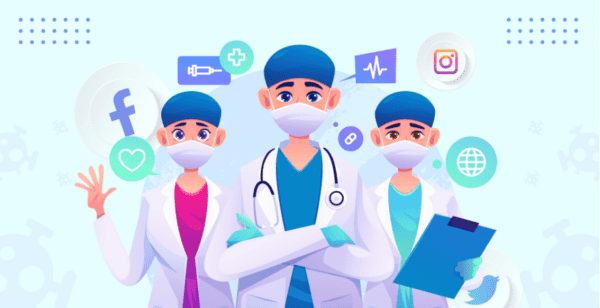
Medical Education: Social media can be used to share medical education content. Medical institutions can share research papers, case studies, and other educational content on social media platforms. By doing so, they can promote their expertise and attract students interested in learning more about the field.
Literature Review: Social media can be used to share literature reviews. Medical institutions can use social media platforms to share literature reviews on various topics, such as new treatments, technologies, and research. By doing so, they can keep their followers up-to-date on the latest developments in the field.
George Washington University is one of the institutions that has successfully used social media for medical recruitment and marketing. They have used social media to share job openings, promote services, and engage with patients. By doing so, they have established themselves as a leader in the field and attracted top talent to their organization.
Related Posts:
